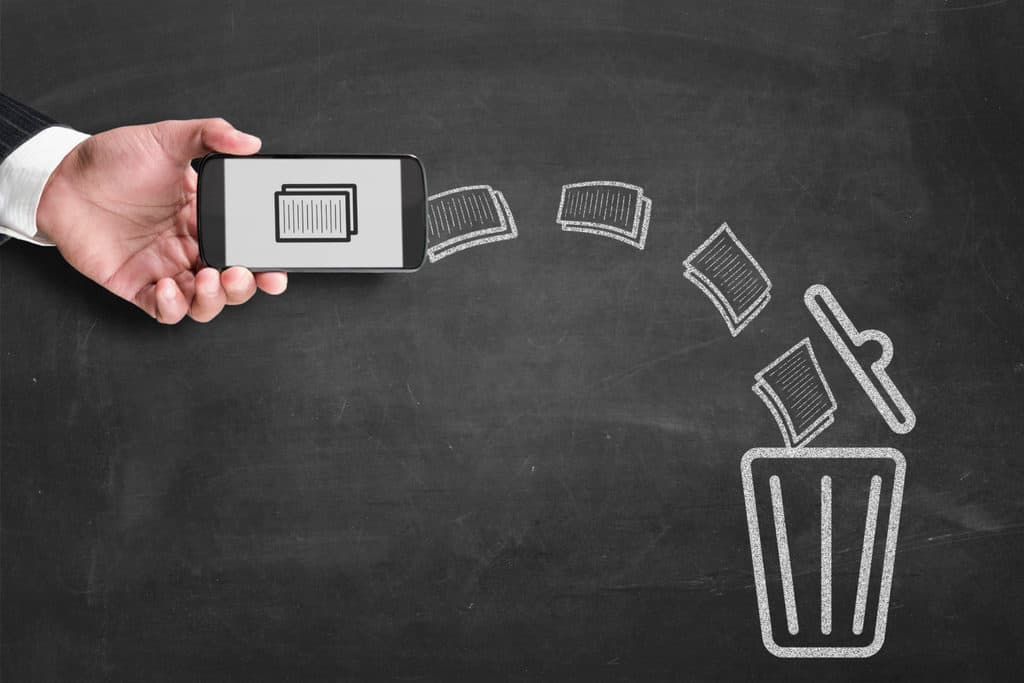Have you ever heard the phrase clear the cache as a simple computer solution? Well, get ready to. It’s not just an easy technical fix, though. Clearing your device or browser cache may end up being a simple marketing solution, too.
Having Cache at Hand
For starters, it may help to define what we’re talking about. Cache (pronounced “cash”) is a collection of data that has been downloaded and stored from web browsing and mobile app use. Basically, if you pull up a web page or use an app on your phone, your device saves what it sees for easy access later.
Have you ever noticed that a web page loads faster the second time you visit it? When you initially viewed the site, your browser downloaded certain elements onto your computer or phone. That way, when you access the site a second time, your device can draw the information straight from the cache.
Consider the Doohickey website. Our logo is in the top left corner of every web page. Now that our logo is downloaded to your cache, it—and other reoccurring elements throughout our pages—will appear faster as you explore our site.
Much like your own memory’s ability to recall information faster after repeat exposure, your computer or mobile device can load a website much faster a second time. That’s supposed to make life easier…right?
The Cache Conundrum
Unfortunately, there’s a caveat. What if we updated our logo, but your device continued to pull the previous image from your cache? In the same sense, your device may be depending on your cache for information, instead of fresh data.
Cache data can also impact your company’s website search engine results page (SERP) ranking. Since you’ve been on your company website before, that URL has been cached. Therefore, when you search for the keyword phrases associated with your business, search engines are likely to place your site higher. Search engines assume you’re looking for that same site, or similar ones, based on your cached data.
When potential customers search those same keywords, your company won’t be ranked as high for them. Skewed data, caused by your cache, might have you convinced your search engine optimization (SEO) is working to get you a higher ranking! By fixing this issue, you’ll be able to see where your company is really ranked (and then reevaluate your marketing strategies to improve that ranking).
Google Caches In
Your browser might be saving more than just search data. Google personalization and cached data in your browser might be causing you to view a false SERP ranking, too. Discover how Google may be storing your personal information—and how to stop it—here.
Clear the Cache
Well, we did give you the heads up. Clearing your cache will remove all the stored data of searches, URLs, and sites from your device. That way, you can see where your company website is actually ranked in search engine results. Deleting all the data that has been piling up in storage might help your device run faster, too.
For a long-term solution, use private browsing or log out of your Google account. However, Google has now extended Personalized Search to signed-out users. Searches made within 180 days will still alter your results, so private browsing may be the better option. You can also clear the cache more often, too.
Once you clear the cache, you can view unbiased search results with your accurate SERP ranking. That way, you know the real results of your marketing efforts, and can reassess those strategies to aim higher!

